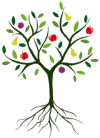Irish Peach
Irish Peach is a very early season apple, often ripening at the end of July or early August. It has good natural resistance to many of the diseases that affect apple trees.
For such an early apple, the flavour is good, although like all early varieties it really needs to be eaten straight from the tree.
Irish Peach apple trees for sale
RF11-year bare-root
tree
on MM106 rootstock£34.95
Mature height: 3m-5m after 10 years
Can be trained on as a large free-standing apple tree, a half-standard apple tree, a large apple fan or espalier, or a pleached apple tree. Available next season
RF22-year bare-root
tree
on MM106 rootstock£43.00
Mature height: 3m-5m after 10 years
Suitable for a large bush-trained free-standing apple tree. Available next season
Growing and Training
Irish Peach is easy to grow, and the tree is amongst the hardiest of apple varieties. Cropping is usually good.
Irish Peach is a good example of a tip-bearing apple variety, with most (but not all) the fruit borne on the ends of branches. For this reason it is not a good variety for any kind of training (e.g. espaliers or cordons) as the pruning needed to maintain the form will remove most of the fruiting tips. Conversely, it is a good choice if you don't want to be bothered with the chore of pruning because tip-bearers generally don't need any routine pruning.
The tree starts out fairly upright but becomes more spreading with age, a characteristic of many tip-bearing varieties.
History
Irish Peach was discovered in Ireland in the early 19th century.
Irish Peach characteristics
- Gardening skillBeginner
- Fruit persistenceFruit drops when ripe
- Self-fertile?Not self-fertile
- Pollinating othersAverage
- Pick seasonVery early
- Picking periodmid-August
- KeepingDoes not keep
- Food usesEating fresh
- Country of originIreland
- Period of origin1800 - 1849
- Fruit colourOrange flush
You might also like these varieties
BardseyA hardy disease-resistant apple, discovered growing on an island off the west coast of Wales.
KatyKaty is an attractive and versatile early apple variety from Sweden, very easy to grow.
RosetteProbably the best-flavoured of the pink-fleshed apple varieties, and produces lovely pink juice.
More about apple trees
Apples are very versatile, and all varieties can be eaten or used in the kitchen. However varieties specifically grown as eating apples tend to have the best flavours for eating raw.
The main thing to decide when choosing an eating apple is when you intend to eat the apples. Early season apples are typically ready in August, and generally don't keep very long. Mid-season apples are ripe in early September, while late-season apples start to become ripe in late September and October. Many of the late-season varieties can also be stored in a fridge or cold shed for several months into the winter.
Some apple varieties are self-fertile, but most are not. However in most areas of the UK you do not need to worry whether your apple trees are self-fertile or not, as there will be other apple trees in nearby gardens to help with pollination.
